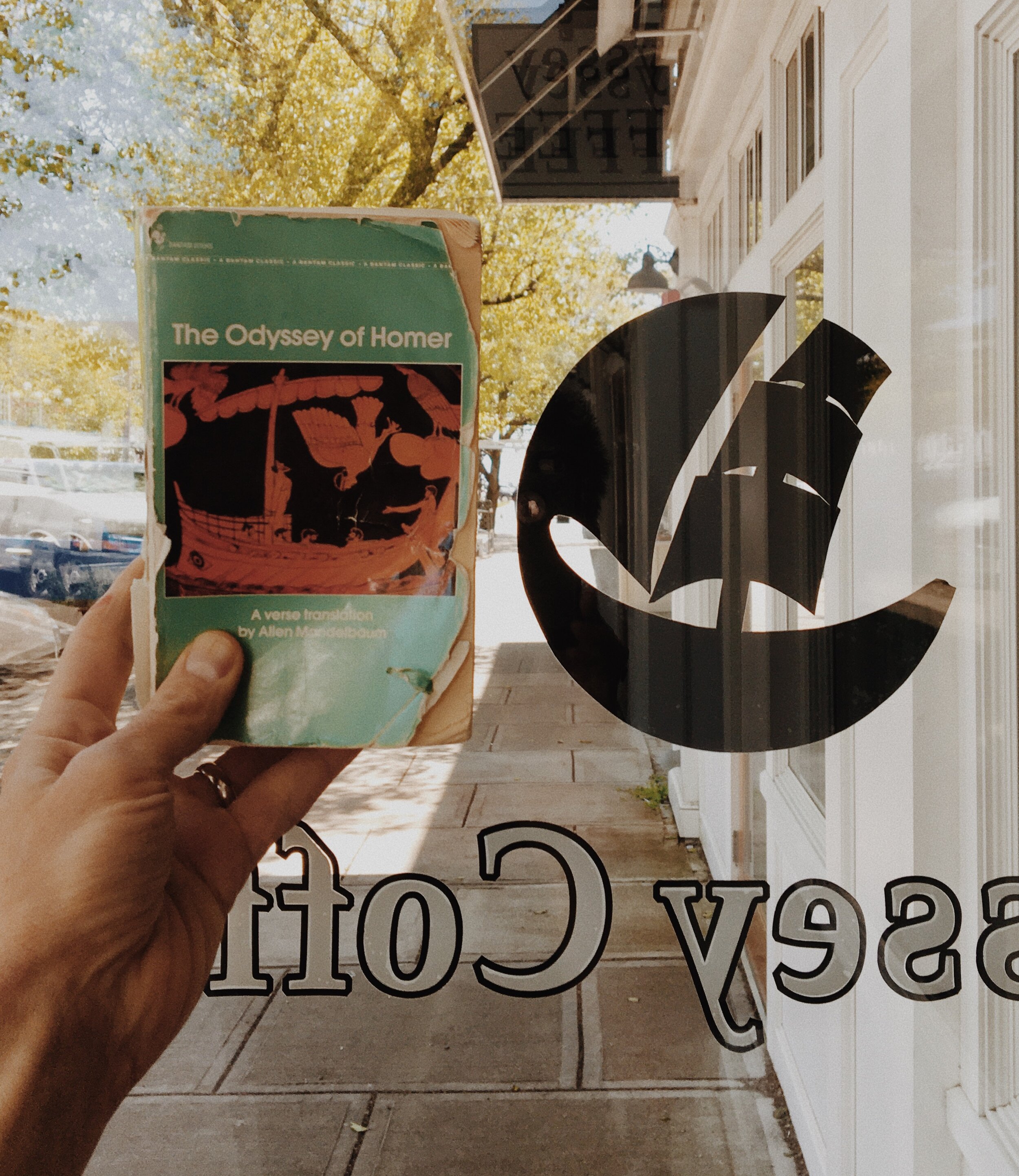Essential Reading
Odyssey coffee is your seaside refuge for thinking (and reading)…
How could you not expect a reading list from a classics professor who built a coffeehouse?
When you’re ready to launch your own philosophical quest, here’s some essential reading at Odyssey Coffee. From here on out promise to yourself that you will refrain from making any claims about these books until you have read them in their entirety.
Because what is the philosophical quest if not a quest for honesty?
Apology by Plato
If you’re only going to read one thing by Plato, read the Apology with the West & West Four Texts on Socrates. Anything beyond that, get the complete works edited by John Cooper.
With Plato, the main thing is just to read him.
Nicomachean Ethics by Aristotle
Get Joe Sachs’ translation.
This is easily one of the most important books you’ll ever read. Definitely in the top three.
Want to become a better thinker? Read Aristotle. Every day.
Politics by Aristotle
Get Joe Sachs’ translation.
Genesis
Get Robert Alter’s single volume translation and commentary published by Norton. To dig deeper, check out the NET Bible’s translation notes.
Gospel of Matthew
Pick a translation and read the whole text in no more than two sittings. To dig deeper, check out the NET Bible’s translation notes.
Second Treatise of Government by John Locke
Get the Oxford World’s Classic edition, skip all intros and read the text itself.
Declaration of Independence
Read it twice in one sitting.
Now that you have read Locke’s Second Treatise (above), you know that when the Declaration of Independence claims that “all men are created equal,” it refers to all human beings and by “equal” it means with respect to a natural right to rule other human beings — the (true) idea being that no human being is born with a right to tell other human beings what to do, therefore the only just government is one of consent.
U.S. Constitution
Read the preamble twice in one sitting, skim the articles, read the amendments twice in one sitting.
George Washington’s First Inaugural Address (April 30, 1789)
Thomas Jefferson’s First Inaugural Address (March 4, 1801)
—
Honorable Mention — to be read only after the above:
Summa Theologiae by Thomas Aquinas
Still interested in becoming a better thinker? Read Aquinas. Not summaries of Aquinas, the actual thing. I dare you.
Alien Powers by Kenneth Minogue
This is advanced reading but, published in 1985, this book presciently predicted (without trying to predict anything) what we see in the West right now.
A Very Short Introduction to Politics by Kenneth Minogue
Thou Shall Prosper by Daniel Lapin
The Chronicles of Narnia by C. S. Lewis (Yes, all seven.)
Only a virtuous people are capable of freedom. As nations become corrupt and vicious, they have more need of masters.
— Benjamin Franklin
